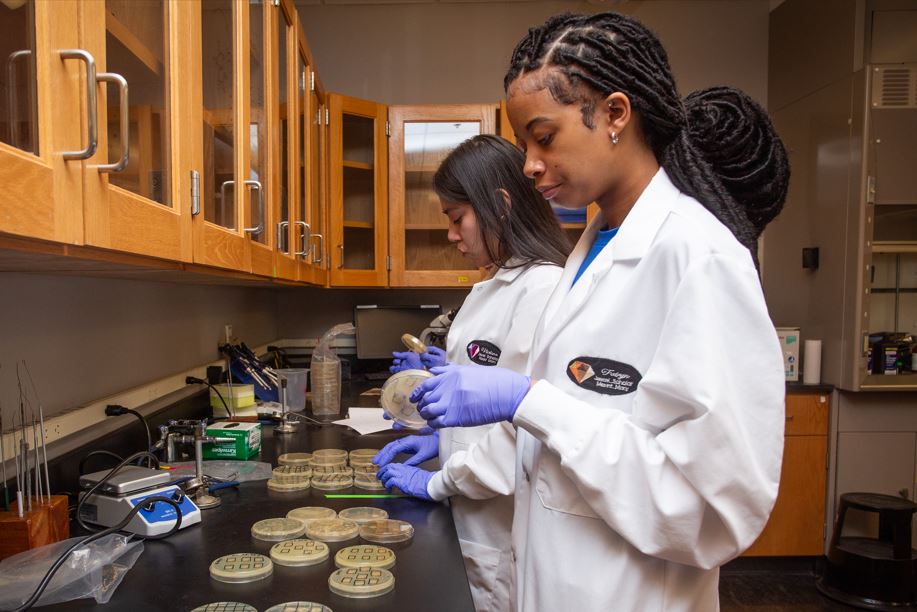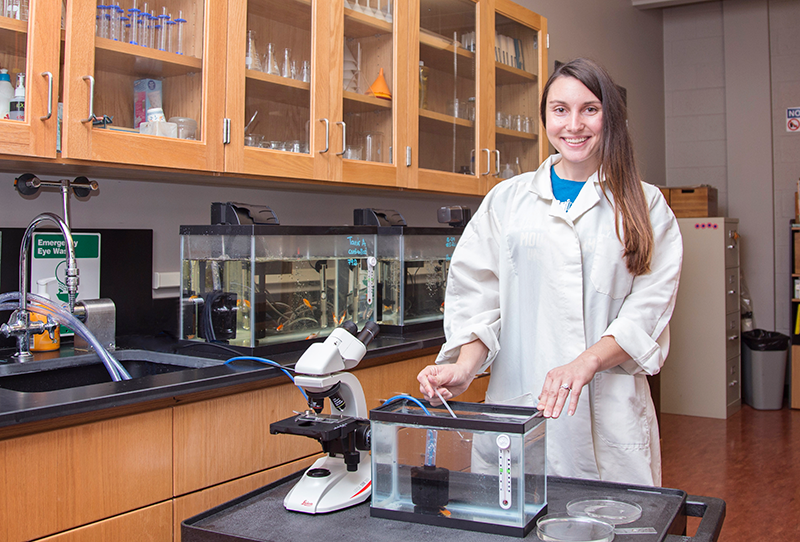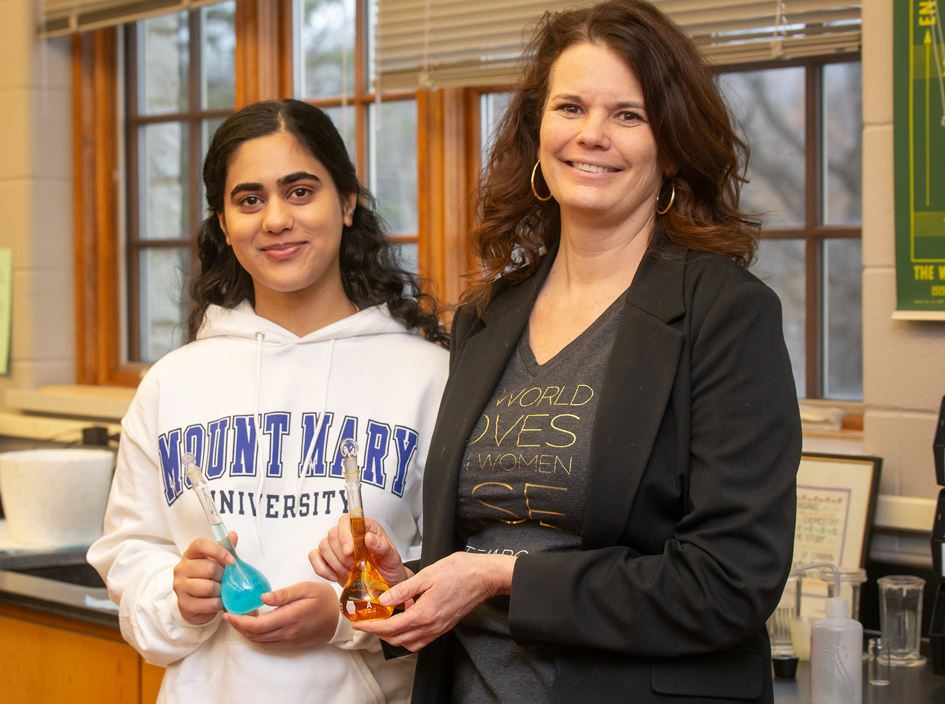Biochemistry

What's different about Mount Mary's Biochemistry Major?
The Biochemistry Program invites students to apply chemistry to everyday life. Biology and chemistry courses are woven together in this major to advance the understanding of biological systems at the molecular level. Coursework emphasizes data analysis and problem solving along with broad scientific literacy, basic laboratory techniques and relevant computer applications. Laboratory experience with emphasis on methods is an integral part of biology and chemistry courses.
Minor in Biochemistry
Complete degree requirements for a minor in biology and a listing of courses are available in the Undergraduate Bulletin.
Food Science Certificate
The Food Science certificate stems from the sciences of biology, chemistry, and engineering. In this, students will be able study the nature of foods with nutrition to understand the principles of food making to improve food quality. See details about the food science certificate.


Scholarships for Biochemistry Majors
Jewel Scholars Program
Mount Mary University's Jewel Scholars Program aims to expand access to STEM careers for women and underrepresented students, with the purpose of growing the talent pool of highly skilled scientists in the Milwaukee area.
- Jewel Scholars who are first year students will earn $27,000 or more per year, renewable for four years.
- Jewel Scholars who transfer in to Mount Mary will earn $26,000 or more per year.
Ruth Margaret Debelack Memorial Scholarship
As a biology major, you may be eligible for the Ruth Margaret Debelack Memorial Scholarship. This scholarship is need-based and is renewable to support you to earn your degree.
Learn more about Mount Mary's Biochemistry Degree
Mount Mary University offers a Bachelor of Science in Biology. You can customize your major by choosing one of three sequences:
- General biology: This sequence prepares you for entry-level biology jobs after graduation.
- Health sciences: Through rigorous courses, hands-on learning and test preparation, this sequence prepares you for graduate study in dentistry, medicine, optometry, osteopathic medicine or veterinary science. Our graduates are well-prepared to take the Medical College Admission Test (MCAT), Dental Admission Test (DAT) and Graduate Record Exam (GRE). Learn more about pre-professional programs.
- Biology education: If you wish to become a biology teacher, you must complete requirements for both the biology and education majors. When you complete the program, you will be eligible to teach biology or broad field science from early adolescence through adolescence (approximately grades 6 to 12). A student teaching experience is required.
- Student-centered learning involving real-world problems and hands-on experience
- A classroom focus on learning, gaining experience and developing expertise
- Small classes for both lectures and labs
- Capstone courses for juniors and seniors where you design and conduct your own research studies
Admission & Bachelor’s Degree Requirements
The biology curriculum helps you the master scientific method and the ability to organize resources to solve problems. Courses cover topics such as animal behavior, ecology, environmental science, genetics, human physiology, microbiology, molecular techniques and zoology.
The biology major requires 58-66 credits, depending on the sequence you choose. You also must complete the university’s core curriculum requirements. Complete degree requirements and a listing of courses are available in the Undergraduate Bulletin.
Some academic programs require a GPA higher than what is required for general admission to Mount Mary University. Contact your admission counselor for more information.
Biology Minor Requirements
A biology minor is an excellent match for chemistry, dietetics and education majors. The minor requires a minimum of 19 credits. For more details on requirements and courses for this minor, see the Undergraduate Bulletin.
Faculty
The School of Arts and Sciences at Mount Mary is rich with talented faculty who care about their students.
A challenging and invigorating biology curriculum prepares you for a successful career in healthcare, research, writing, education, public health or management.
Create Your Own Career Path
With an undergraduate biology degree, you can pursue entry-level positions such as a biological technician, botanist, marine biologist, microbiologist, science researcher, science teacher or zoologist. With advanced study, you could become a chiropractor, dentist, doctor or veterinarian.
Get Internship & Research Experience
Mount Mary faculty can help you find off-campus summer research opportunities and internships, as well as guide you through student-designed research projects on campus. Internships are not required for biology majors, but they are encouraged to allow you the opportunity to find out more about careers you’re interested in and make connections with biology professionals.
Mount Mary students have interned at:
- Food technology laboratories
- Milwaukee County Zoo
- Milwaukee Public Museum
- Research and development microbiology laboratories
- Veterinary clinics
Contact us to hear from your Admission Counselor:
Our admissions team is here to help
The best way to get started is to get in touch. We’ll answer your questions, help you explore programs and walk you through the admissions and financial aid process.